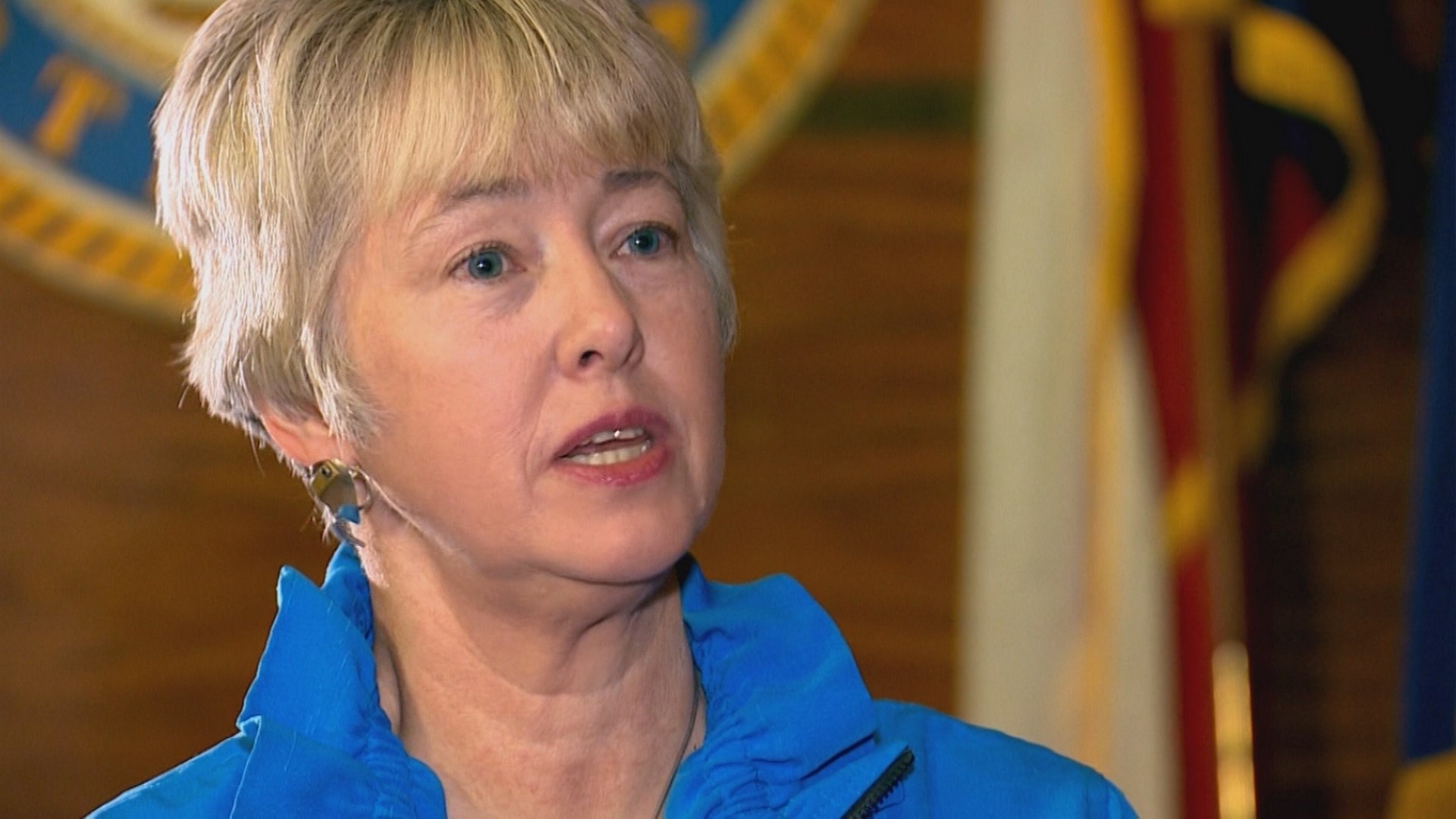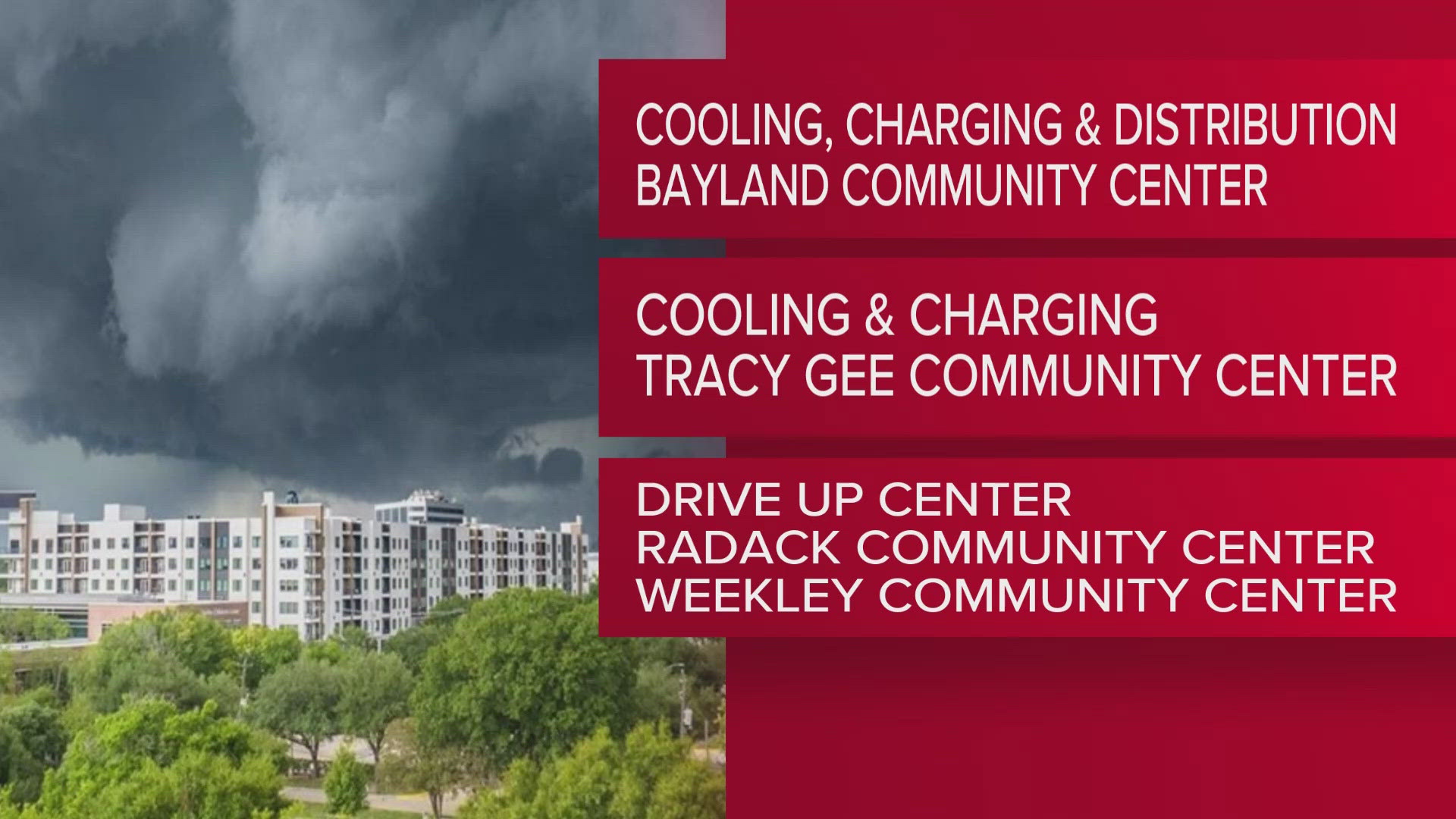HOUSTON -- Annise Parker usually keeps a neat office, but this week she's apologizing for the mess.
"This is my display cabinet," she says, walking around a cardboard box in the middle of the floor. "I'm boxing books."
The cabinet is cluttered with mementos from her years at Rice University, her seasons in the stands at Houston Comets games, her stints as grand marshal of the Art Car Parade. A baseball signed by Jose Altuve sits on a shelf above a collection of golden belt buckles from the Houston Livestock Show and Rodeo customized with the words "Mayor Annise Parker."
"I am absolutely melancholy," she says.
Houston's history-making mayor is packing up six years of memories from an era when she and the city she's managed have dramatically changed. Parker presides over her last city council meeting this week, ending an 18-year tenure -- as a city councilmember, as city controller and as mayor -- at Houston City Hall.
Six years ago, she bristled at anyone who tried to pigeonhole her as "Houston's gay mayor." Now that she's leaving office, she's much more comfortable discussing how her place in history helped alter the city's image.
"I am not the 'gay mayor' of Houston," Parker said. "I never have been. And it was very hard for me to push back in the very beginning, because everybody wanted to make me the 'gay mayor' of Houston because it was a novelty. I'm the mayor of Houston."
Instead of shunning the attention, Parker learned to pivot in interviews with national reporters. After a few minutes discussing her background as a lesbian activist, she would shift to talking about how Houston had transformed since the era when John Travolta rode a mechanical bull at Gilley's.
"It gave me an opportunity to talk about the coolness factor of Houston," Parker said. "And all of a sudden, the West Coast media and the East Coast media here in the United States began to pay attention to Houston in a way they never had before."
The unwanted focus on her sexual orientation was a blessing in disguise, says Parker, who gleefully claims "absolute credit" for bringing global attention to the city.
"It's not an accident that Houston began to pop on all these 'best of' lists," Parker said. "It's not that we suddenly became the best of anything when I became mayor, it's that people started noticing."
That lesson in spin control came easy. Other lessons came harder.
Her greatest regret, the one action she would change if she could go back in time, was a decision she believes continues to cost some Houstonians their lives. She laughs when she talks about "those damn red light cameras," but she's quite serious when she asserts that voters who shot down the controversial camera program are responsible for the deaths of Houston drivers.
Red light cameras were deployed by former Mayor Bill White. Opponents of the cameras gathered signatures on petitions calling for a referendum on the matter.
Although Parker supported red light cameras, she agreed to put the issue on the ballot. A few outspoken councilmembers -- notably Anne Clutterbuck -- asserted that the referendum violated an arcane provision in the city charter and set the city government up for a round of litigation with the contractor running the red light cameras.
A federal judge later agreed with that position, but by then voters had already rejected the red light camera program.
"So not only did we lose the red light cameras and the money that was coming in from the red light cameras, I believe that we have killed people," Parker said. "And the people who voted to do away with red light cameras have blood on their hands."
The red light camera fight also emboldened conservative political activists, who later challenged her on other issues like the equal rights ordinance and the drainage fee.
The next mayor must tackle the city's pension problems, an issue she believes plays into the state legislative wheelhouse of Mayor-elect Sylvester Turner. But Turner has one very big fiscal advantage working in his favor, Parker says.
"The next mayor is going to look like a genius once these road projects begin to really come on line," Parker said.
She's referring to the upcoming flood of money finally flowing out of the ReBuild Houston program financed mainly by the city's drainage fee. Under the "pay-as-you-go" element of the program Houston quit borrowing money for street and road projects, stalling work until the city government could bank enough money to underwrite projects without issuing bonds.
Parker hopes people remember her mainly for expansion of city parks under her watch, most conspicuously the privately financed renovation of Buffalo Bayou Park. She's also especially proud of her work on behalf of the homeless, boasting that Houston has all but eliminated homelessness as an issue for veterans under her watch.
"I feel like I have a relationship with the citizens of Houston, where whether they agree with me or not, whether they like me or not, they have trusted me," Parker said. "And I have always tried to live up to that trust."
Now the most powerful woman in Houston finds herself, like so many other people in the city, looking for a job. Although she's talked about running for another office, history works against her. No mayor of Houston in modern times has ever moved on to a higher office.
"I'm afraid I may have had the best political job I'm ever going to have," she says. "And I don't know what comes next, which is a little bit liberating but very scary."


